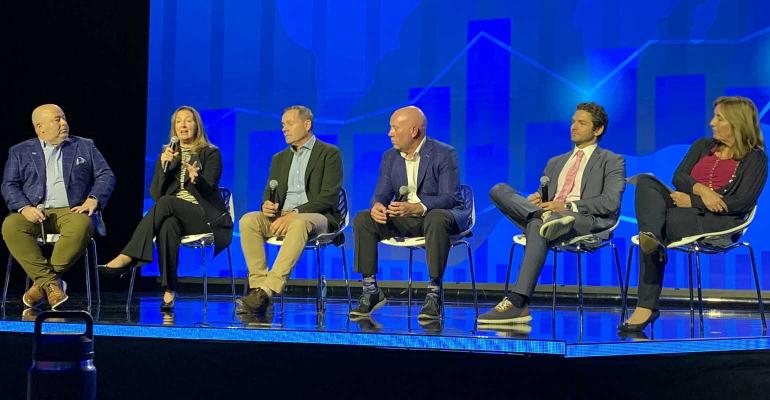Advisors always are looking to grow their practices through prospecting for new clients and lead generation. But there’s a big opportunity to grow wallet share right inside of an advisor’s practice, said industry executives, speaking at Riskalyze’s Fearless Investing Summit in Salt Lake City this week.
Envestnet, for instance, has been working on understanding that opportunity over the last 18 months. The firm is spending a lot of time bringing in data analytics, so that advisors can better understand what current clients are interested in.
“We realize that most advisors, with their current clients, by just engaging them a little more deeply have anywhere between a 20% to 70% revenue growth opportunity sitting in the clients that you already have today,” Envestnet CEO Bill Crager said at the summit.
Envestnet has found that clients are going to be 80% to 90% responsive to an advisor who uses these data insights.
“We’re perfecting that degree of intelligence to unlock your own client base to go broader and go deeper to drive more topline, which ultimately is what you want to achieve,” Crager said.
Lori Hardwick, who is on the board of multiple financial services firms, said the opportunity for growth lies in the women that advisors already serve. Women typically live six years longer than men, and a McKinsey study found that $70 trillion in assets that will be passed within the baby boomer generation will go to women.
“The bad news is that we’re in an industry that is 85% men, male-dominated,” she said. “The really shocking news to me is that studies show that within 12 months of a woman becoming widowed, she finds a new financial advisor.
“That could be a great growth strategy for you if you happen to be really connected to women and widows and able to build into that community and allow yourself to grow," Hardwick said. "It also could be really bad news for you, if you think you’re going to be their advisor still and you’re not connected to that half of the relationship.”
Women tend to be more risk-averse, Hardwick said, so advisors can start using Riskalyze’s tools with them to figure out where they are on that risk scale.
Brian Hamburger, CEO of MarketCounsel, said when it comes to growth, advisors aren’t asking the right questions.
“They’re asking, ‘how do I grow my firm?’ and yet if you look right over their shoulder, they haven’t properly built the foundation for their firm,” he said. “So often when we hear from an advisor and they’re asking us, ‘How do we grow our firm?’ we say let’s pause and let’s dig deep. Have you addressed the legal issues? Have you addressed the regulatory and compliance issues, that baseline operational standard that we can’t fall below? And have we addressed the risk issues?”
Hamburger said he asks advisors about their corporate governance and corporate business structure, client agreements, agreements with vendors and service-level agreements, among other things.
“As you start to rattle down the list of the things that form a strong foundation for an advisor, the growth starts to take care of itself,” he said.





